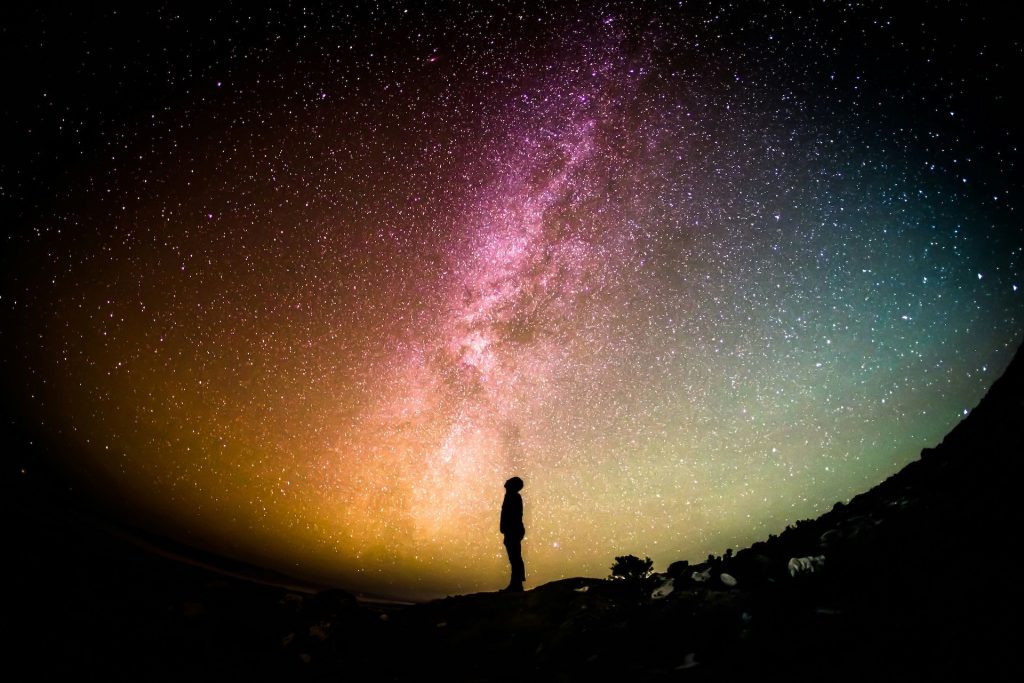By Christina Bagaglio Slentz, PhD
SAN DIEGO — In recent months, this feature has focused on the Seven Goals of “Laudato Si,” highlighting the key areas to which our Catholic faith calls us to action amidst today’s environmental crisis.
We have discussed how our response to the cry of the earth is interconnected to our response to the cry of the poor — those who are most immediately and intensely affected by environmental degradation. We have described ways to adopt sustainable lifestyles to “live more simply so that others may simply live,” as Mother Teresa of Calcutta reportedly said.
We have reviewed the teaching of Pope Benedict XVI that our purchases amount to moral activity and should therefore be carefully discerned, providing powerful context for the goal of ecological economic development, and we have shared stories of ecological education events and opportunities for all ages in our diocese.
Most recently, we have encouraged an embrace of ecological spirituality, a sense of deep gratitude for God’s gift of creation from which care for our common home in loving response to this gift must flow.
This month, we tackle the seventh and final goal of “Laudato Si,” to build community resilience and empowerment. The Vatican’s “Laudato Si” Action Platform explains, “Community resilience and empowerment envisage a synodal journey of community engagement and participatory action” to foster “rootedness and a sense of belonging in local communities and neighborhood ecosystems.” What do these buzz words mean to us, as people of faith? This article first examines our Catholic understanding of what it means to be community, then delves into resilience and empowerment before concluding with suggested actions to support this “Laudato Si” objective.
Participation and Human Community
St. Pope John Paul II writes, “A community is not simply a society, and a society is not simply a community.” This is an important distinction! A society, he explains, is a somewhat accidental grouping of a multitude of people—a geographical happenstance. A community, on the other hand, is a group of people whose relationships and interactions are rooted in a mutual recognition of the fundamental uniqueness and dignity of each member. Thus, a society is enriched by the extent to which it reflects such “community.”
Furthermore, having lived under the oppression of both Nazi and Soviet authoritarian regimes, St. John Paul II strongly emphasizes the importance of our active participation in communal life. He says that free and responsible participation toward the common good is the path by which we fully become who God created us to be. The result for societies, he proposes, is a dynamic that steers clear of both oppressive collectivism as well as extreme individualism — an authentic human community.
Building Resilience and Empowerment
By Catholic design, the definition of the seventh goal of “Laudato Si” draws upon both community and participation. Foundational to empowerment is the recognition of the uniqueness and dignity of every person — the starting point for developing communal relationships that imbues societies with a true sense of community. Filled with a charitable attitude among neighbors, these communities are more likely to be places of peaceful coexistence and cooperation.
Resilience describes how well a society can recover and/or adapt to environmental or other adverse impacts, such as flooding, extreme heat, or any significant change that disrupts day-to-day life — a pandemic, for instance. Developing plans to ensure resilience is greatly enhanced by high community participation in identifying local strengths and weaknesses because multiple perspectives provide a better picture of the ground truth.
The greater the sense of community in a society, the more likely people are to participate in local decision-making efforts. Therefore, a more empowered population will be better able to prepare for and withstand potential hardships and/or disasters. In this population, people understand their own God-given self-worth and see that in others.
Community Resilience and Empowerment
Actions to foster community empowerment and resilience can include writing letters to our local leaders to share our views on local environmental strengths and weaknesses, speaking at municipal and county events, especially giving voice to the poor and vulnerable struggling to adapt to adverse environmental impacts, or even participating in peaceful demonstration.
We also encourage all parishes, schools and households to enrich our society with our Catholic understanding of community, boldly recognizing the human dignity of each person and actively participating toward the common good.
As the “San Diego diocesan community,” we can grow in our environmental resilience by identifying local vulnerabilities and planning Laudato Si’ action steps to reduce the effects of climate change and pollution on our brothers and sisters, often the least capable of adaptation.
We particularly encourage you to consider enrolling in the Vatican’s Laudato Si’ Action Platform. To learn more about our pathway to “Laudato Si” Action, visit our creation care webpage at https://sdcatholic.org/care-for-creation-and-environmental-issues/.
Next month, we invite you to be a part of this community, joining the diocesan celebration of the Season of Creation, from Sept. 1 through the Feast of St. Francis on Oct. 4. Our Season of Creation Mass will be celebrated on Sept. 14 at 5 p.m. at St. Gregory the Great Parish, followed by a small reception. All are welcome! See our website for more details and for information on other Season of Creation events.









